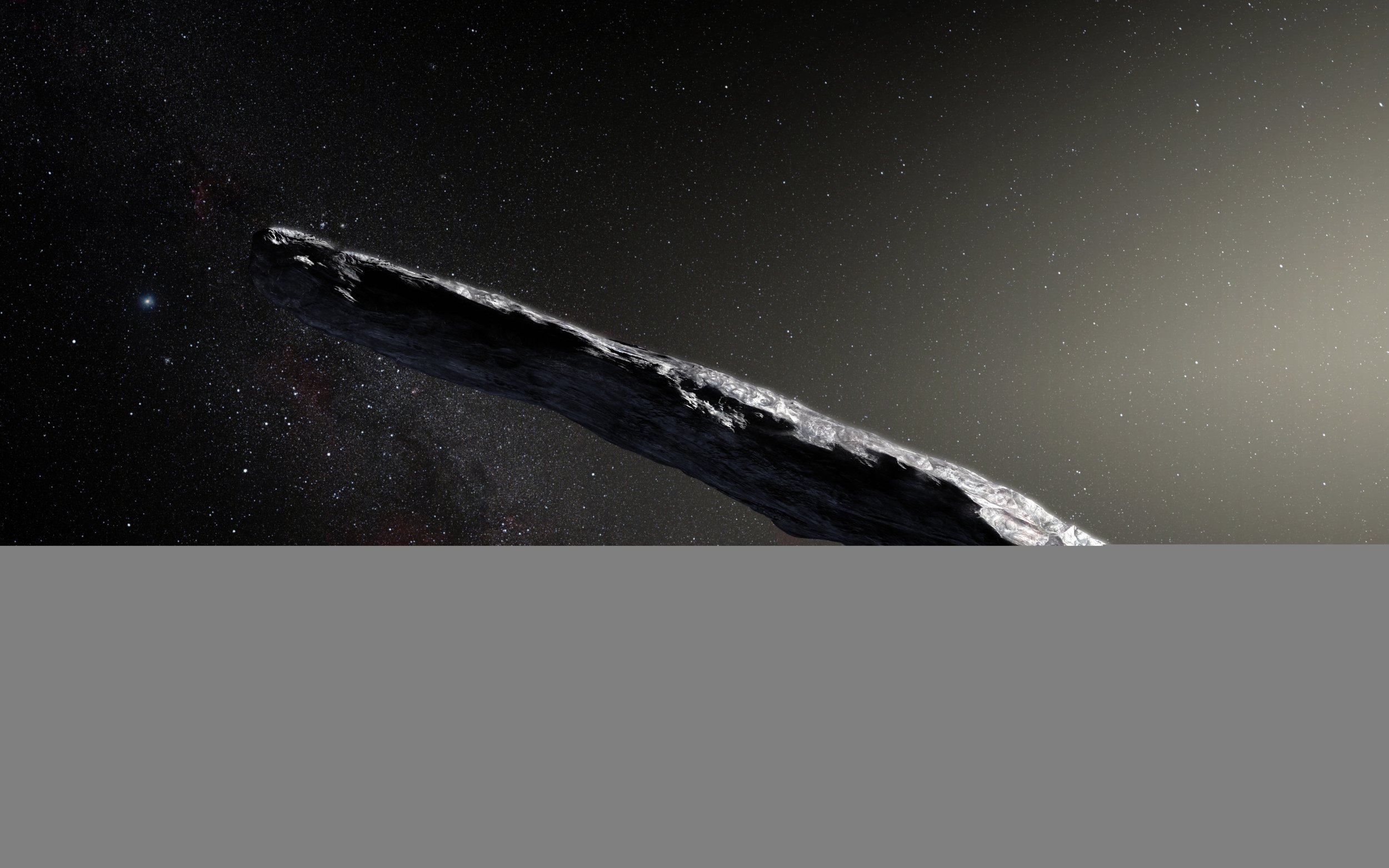
Earlier this week, a team of astronomers announced that they would be using radio telescopes to study 'Oumuamua, currently considered the first known asteroid to visit us from another solar system. Radio signals emanating from the object could not occur naturally, so if the analysis picks up any sign of such signals, it would suggest that the object is in fact unnatural, a probe sent to us by an alien civilization communicating with its creators.
The first results of that analysis, which began on Wednesday, have just been announced, but there's not a final verdict about 'Oumuamua yet. That's because the radio astronomers gathered data in four different bands of radio frequency but have only analyzed one of those sets of data so far. In that band, they did not see any signals coming from the object.
If they do see any signal, that's an immediate sign that something weird is happening. "There should never be a fluke," Avi Loeb, an astronomer at Harvard University who suggested (and is working on) the new observations, told Newsweek. "It's either coming from noise [interference], or it's real."
The analysis is led by the Breakthrough Listen initiative, a project funded by Russian billionaire Yuri Milner with the aim of detecting signs of alien life in the universe. Breakthrough Listen has posted part of the data, which has already been analyzed, and intends to post more as the work continues.
Breakthrough Listen obtained observing time on the Green Bank Telescope, located in West Virginia, to study the asteroid. That telescope is the largest such instrument in the world that can be steered to look at whatever target astronomers choose, making it a particularly powerful tool.
Scientists have been particularly fascinated by 'Oumuamua, which was first spotted in October, after they were able to observe its highly unusual shape. Like a stick being thrown for a dog, it is long and thin and somersaulting over itself as it travels through the universe. Every other celestial object we know about is a more or less spherical lump.
And of course, as the first known object to enter our solar system from elsewhere, it's immediately fascinating. Although we've never seen one before, astronomers believe interstellar visitors should actually be extremely common. Loeb argues that while most of these are almost certainly simply natural, there's always a chance that a tiny proportion of them are something special—like an alien probe.
And in fact, he wanted to gather radio data about 'Oumuamua because of a coincidence: It's shape is strikingly similar to a probe design he's contemplated for Breakthrough Starshot, a related project to send a human probe out to the nearest solar system.
Breakthrough Listen has yet to announce when the rest of the analysis is due to be completed.
Uncommon Knowledge
Newsweek is committed to challenging conventional wisdom and finding connections in the search for common ground.
Newsweek is committed to challenging conventional wisdom and finding connections in the search for common ground.
About the writer
Meghan Bartels is a science journalist based in New York City who covers the science happening on the surface of ... Read more
To read how Newsweek uses AI as a newsroom tool, Click here.








